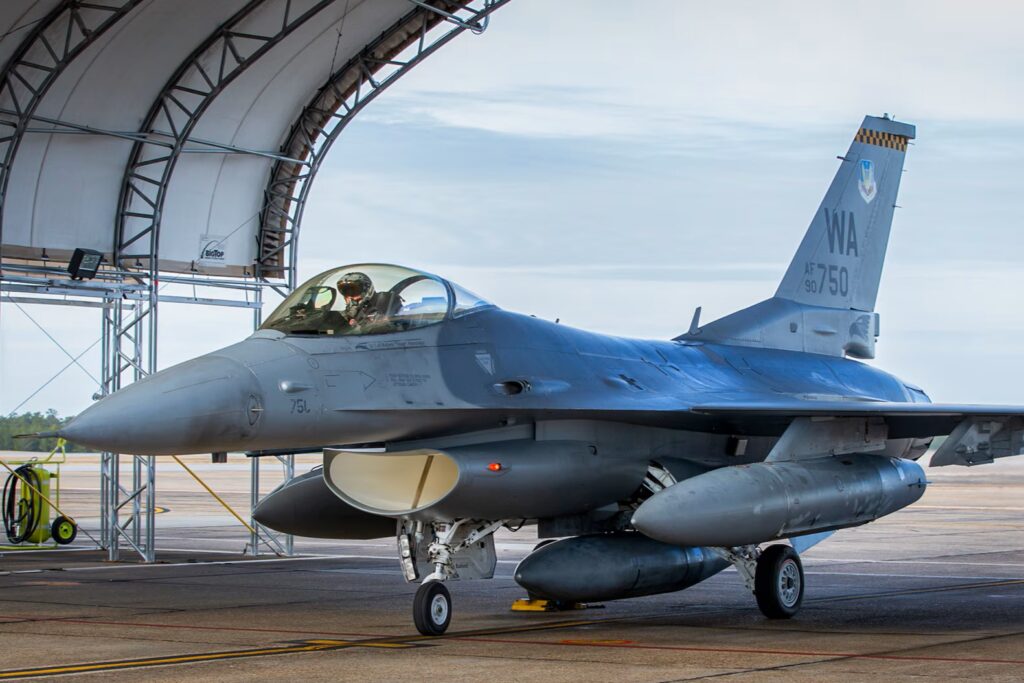The first three US Air Force F-16 Fighting Falcons arrived at Eglin Air Force Base in Florida to be modified into test platforms to evaluate autonomous capabilities.
This testing is part of the Viper Experimentation and Next-gen Operations Model – Autonomy Flying Testbed (VENOM-AFT) program, designed to accelerate the testing of autonomy software for crewed and uncrewed aircraft.
“The VENOM program marks a pivotal chapter in the advancement of aerial combat capabilities,” said Major Ross Elder, VENOM developmental test lead. “This transformative program holds the potential to redefine air combat paradigms by fostering novel autonomous functions for current and future crewed and uncrewed platforms.”
Six F-16 fighters will eventually join the test campaign, which will be conducted by the 40th Flight Test Squadron and the 85th Test and Evaluation Squadron. The pilots will oversee the autonomy in the cockpit, confirm that the flight and mission systems test objectives are achieved, and provide feedback to autonomy developers.
The knowledge gained from the VENOM program will support other US military autonomy-related initiatives, including the Collaborative Combat Aircraft (CCA) program, which aims to give combat drones fighter-like capabilities. It is part of the Next Generation Air Dominance (NGAD) program of the USAF, which plans to replace both the F-15 Eagle and the F-22 Raptor with a “system of systems” built around a sixth-generation fighter jet.

